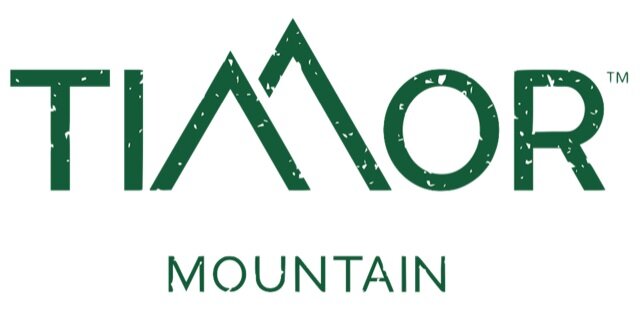Rebirth of a Coffee Nation
Speciality parchment coffee drying on raised drying tables at Daurfusu, Timor-Leste.
The people of rugged mountainous district of Ermera in Timor-Leste refer to themselves as ‘Cafe Oan’ - tetum for ‘children of coffee’.
Wherever you go as a visitor you are welcomed and served coffee. In fact its fair to say Timor-Leste is a coffee nation.
Just about every family in Ermera district has a plot of coffee trees, typically 1 ha of land or 100 metres by 100 metres.
Coffee is indigenous to Ethiopia, and it was not until the 1820’s when the small Portuguese colony in Timor (following the example of the Dutch in present day Java) first brought coffee to Timor.
The Portuguese has first colonised Timor for its valuable sandalwood trees and oil. On some old maps Timor is depicted as the ‘Isle de Sandal’ so prevalent were these aromatic trees. Once this resource was extracted to the point of exhaustion, new trade activities were critically needed.
Coffee was selected to fill the necessity of providing a valuable trade crop back to Portugal . The new crop was instituted under the administration and control of the Portuguese Governor.
Farmers and local rulers (Liurai) had two choices - they could either plant a minimum of 600 coffee trees per family or they could go to a prison farm (where they could do the same labour removed from their families and without pay.
The coffee industry in Timor was not set up to benefit the Timorese, it was set up to benefit Portugal, its colonial administrators and over time its influential land holding families who set up large plantations.
In 1975 following Portugal’s rapid decolonisation of Timor and its other colonial holdings, the Indonesian military invaded. While the state of Indonesia fought for its independence from the Dutch after world war two, it became a coloniser itself in Timor.
The Indonesian Military (TNI) ruled Timor as its own fiefdom. When it came to coffee it monopolised all trade through a central military owned company - setting prices for farmers coffee at a fraction of that of the rest of Indonesia. The TNI directly exporting the coffee to Singapore and on to other destinations pocketing the proceeds.
With hard fought independence won in 1999 by an oppressed population, the domination of the military was lifted. The plantation sector had collapsed leaving smallholders farmers as the principal source of coffee production.
Under international commodity pricing of coffee, prices received by farmers hosted immediately and significantly. While commodity pricing was a vast improvement on the past it is not something to celebrate (as smallholder farmers throughout the world know).
Independence
In 2001 with the formal declaration of the new state of Timor-Leste, much had been gained, but much also had been lost. Every family in Timor had lost loved ones to the violence and trauma inflicted by the occupier.
Colonisation is a process of exploitation and extraction - its concern with serving the coloniser whether in Portugal or indonesia (or wherever) meant that there was a lot of take and little put back. While the departing TNI burnt and destroyed as much infrastructure as they could.
Two decades after achieving its independence, there’s some exciting new developments in Timor-Leste’s coffee industry - the emergence of a small dynamic specialty coffee sector.
Rebirth of a Coffee Nation
In my mind the credit for planting the seed of Timor’s now rapidly growing specialty coffee industry sector goes to to Japanese NGO’s : Peace Winds Japan (within Emrera District) and PARCIC (in Maubisse).
Way back in 2002 the two organisations began working with local coffee farmers communities in a respectful long term partnership.
They directed their efforts to skilling and organising farmers to produce speciality quality coffee that fetched a farm-gate price of double that of commodity coffee.
Furthermore, they secured export markets in Japan and elsewhere that purchased these early exports.
The result was the re-birth of Timorese coffee as a high quality product.
One where the product was is still destined for foreign markets, but this time under a trade structure where the families who tended the coffee, picked the cherries and processed and dried the bean were paid a premium price.
A price determined by the quality of their product and the consumers appreciation of it.

